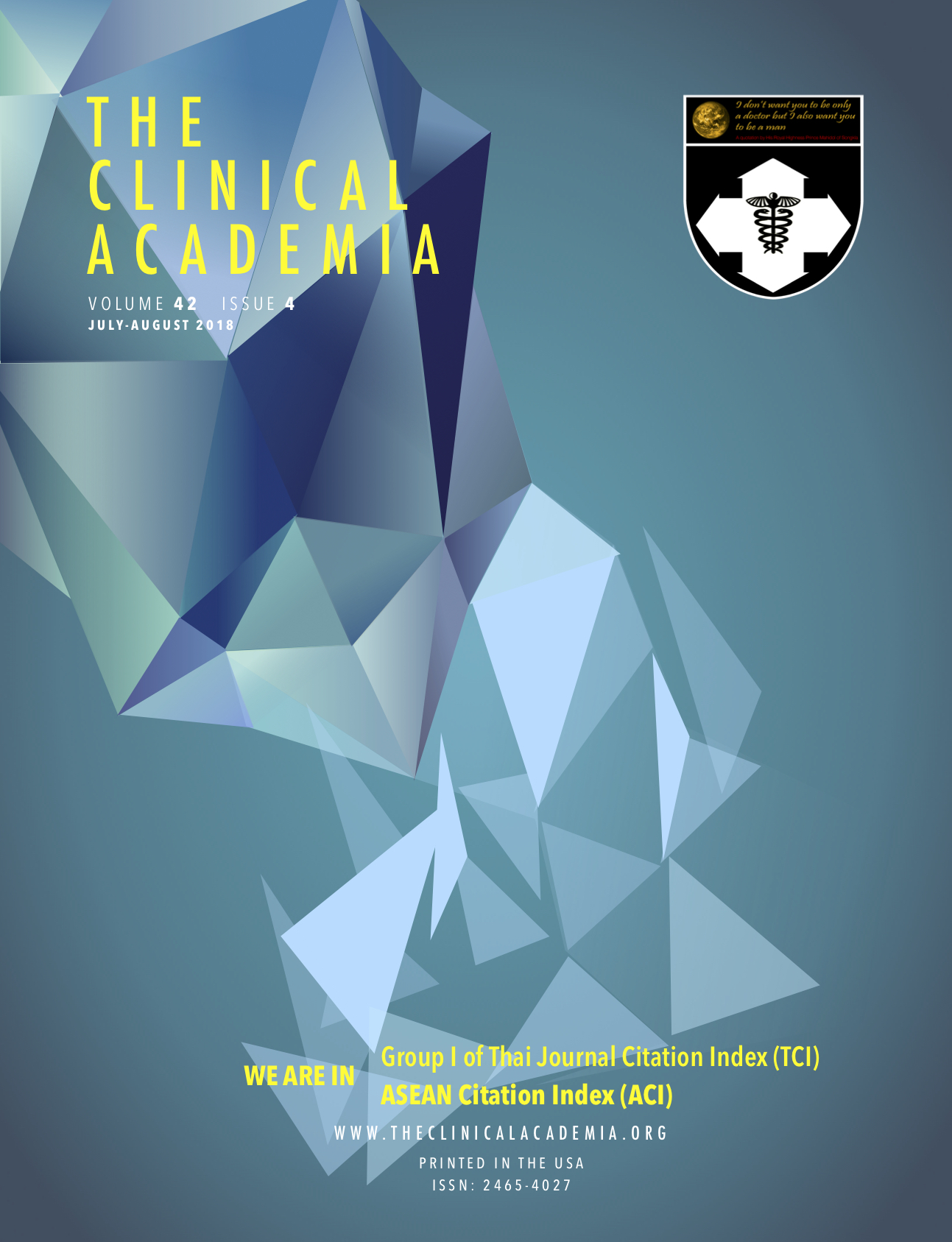Pentoxifylline and prednisolone for improving mortality in severe alcoholic hepatitis: a systematic review
บทคัดย่อ
OBJECTIVE
To identify the efficacy of pentoxifylline and prednisolone on mortality in severe alcoholic hepatitis.
METHODS
We searched studies from Pubmed, the Cochrane Library, and Scopus. For Pubmed, MeSH terms "pentoxifylline", "prednisolone" and "alcoholic hepatitis” but other databases used the following keywords: pentoxifylline and prednisolone and alcoholic hepatitis. All randomized controlled trials (RCTs) that related were included. We included those studies with participants with severe alcoholic hepatitis. The primary outcome was mortality and secondary outcomes were adverse events. We included trials irrespective of language or publication status.
RESULTS
We included seven RCTs with 1,214 patients, carried out between 2009 and 2015. Meta-analysis showed that for 28 days mortality pentoxifylline did not significantly reduce mortality rate in those with severe alcoholic hepatitis compared to prednisolone (relative risk [RR], 1.05; 95% confidence interval [CI], 0.60 to 1.85; I2=63%), prednisolone did not significantly increase the mortality rate in those with severe alcoholic hepatitis compared to prednisolone plus pentoxifylline (RR, 1.07; 95% CI 0.77 to 1.48; I2=0%) but pentoxifylline significantly decrease the mortality rate in those with severe alcoholic hepatitis compared to prednisolone plus pentoxifylline (RR, 1.47; 95% CI, 1.00 to 2.18; I2=0%).
CONCLUSION
For short-term treatment, there were no differences in 28 days mortality rates between pentoxifylline and prednisolone, prednisolone and prednisolone plus pentoxifylline and pentoxifylline and prednisolone plus pentoxifylline and for long-term treatment, there were no differences in the mortality rates between prednisolone and prednisolone plus pentoxifylline, pentoxifylline, and prednisolone plus pentoxifylline.



